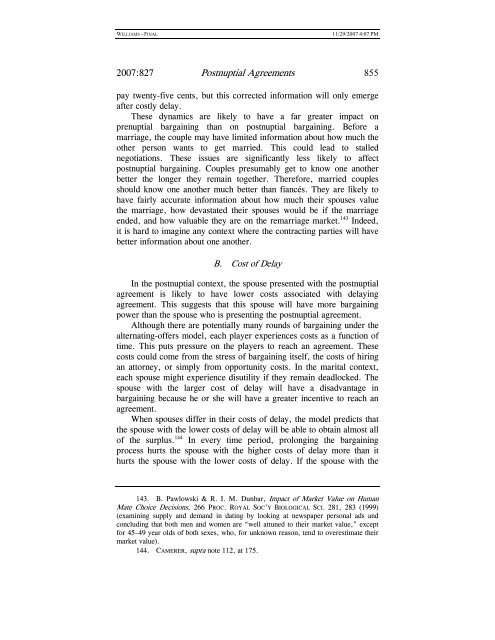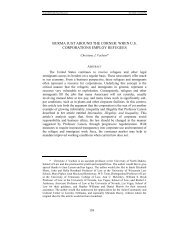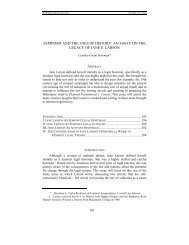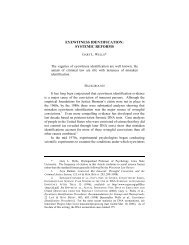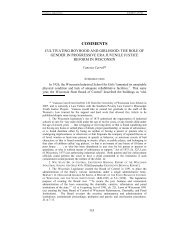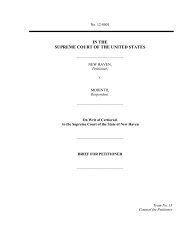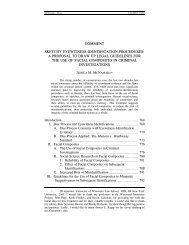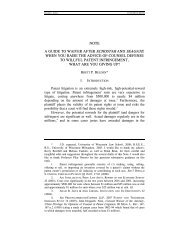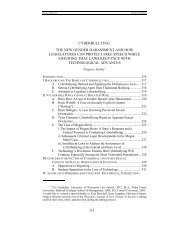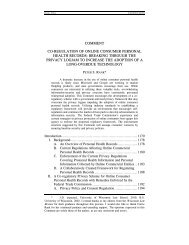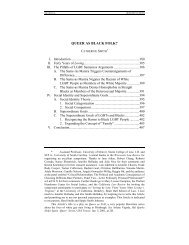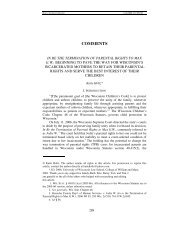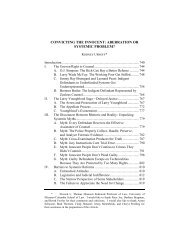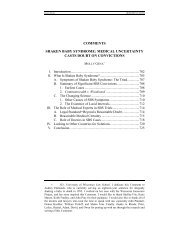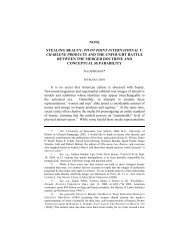POSTNUPTIAL AGREEMENTS - UW Law School
POSTNUPTIAL AGREEMENTS - UW Law School
POSTNUPTIAL AGREEMENTS - UW Law School
You also want an ePaper? Increase the reach of your titles
YUMPU automatically turns print PDFs into web optimized ePapers that Google loves.
WILLIAMS - FINAL 11/29/2007 4:07 PM<br />
2007:827 Postnuptial Agreements 855<br />
pay twenty-five cents, but this corrected information will only emerge<br />
after costly delay.<br />
These dynamics are likely to have a far greater impact on<br />
prenuptial bargaining than on postnuptial bargaining. Before a<br />
marriage, the couple may have limited information about how much the<br />
other person wants to get married. This could lead to stalled<br />
negotiations. These issues are significantly less likely to affect<br />
postnuptial bargaining. Couples presumably get to know one another<br />
better the longer they remain together. Therefore, married couples<br />
should know one another much better than fiancés. They are likely to<br />
have fairly accurate information about how much their spouses value<br />
the marriage, how devastated their spouses would be if the marriage<br />
ended, and how valuable they are on the remarriage market. 143 Indeed,<br />
it is hard to imagine any context where the contracting parties will have<br />
better information about one another.<br />
B. Cost of Delay<br />
In the postnuptial context, the spouse presented with the postnuptial<br />
agreement is likely to have lower costs associated with delaying<br />
agreement. This suggests that this spouse will have more bargaining<br />
power than the spouse who is presenting the postnuptial agreement.<br />
Although there are potentially many rounds of bargaining under the<br />
alternating-offers model, each player experiences costs as a function of<br />
time. This puts pressure on the players to reach an agreement. These<br />
costs could come from the stress of bargaining itself, the costs of hiring<br />
an attorney, or simply from opportunity costs. In the marital context,<br />
each spouse might experience disutility if they remain deadlocked. The<br />
spouse with the larger cost of delay will have a disadvantage in<br />
bargaining because he or she will have a greater incentive to reach an<br />
agreement.<br />
When spouses differ in their costs of delay, the model predicts that<br />
the spouse with the lower costs of delay will be able to obtain almost all<br />
of the surplus. 144 In every time period, prolonging the bargaining<br />
process hurts the spouse with the higher costs of delay more than it<br />
hurts the spouse with the lower costs of delay. If the spouse with the<br />
143. B. Pawlowski & R. I. M. Dunbar, Impact of Market Value on Human<br />
Mate Choice Decisions, 266 PROC. ROYAL SOC’Y BIOLOGICAL SCI. 281, 283 (1999)<br />
(examining supply and demand in dating by looking at newspaper personal ads and<br />
concluding that both men and women are “well attuned to their market value,” except<br />
for 45–49 year olds of both sexes, who, for unknown reason, tend to overestimate their<br />
market value).<br />
144. CAMERER, supra note 112, at 175.


